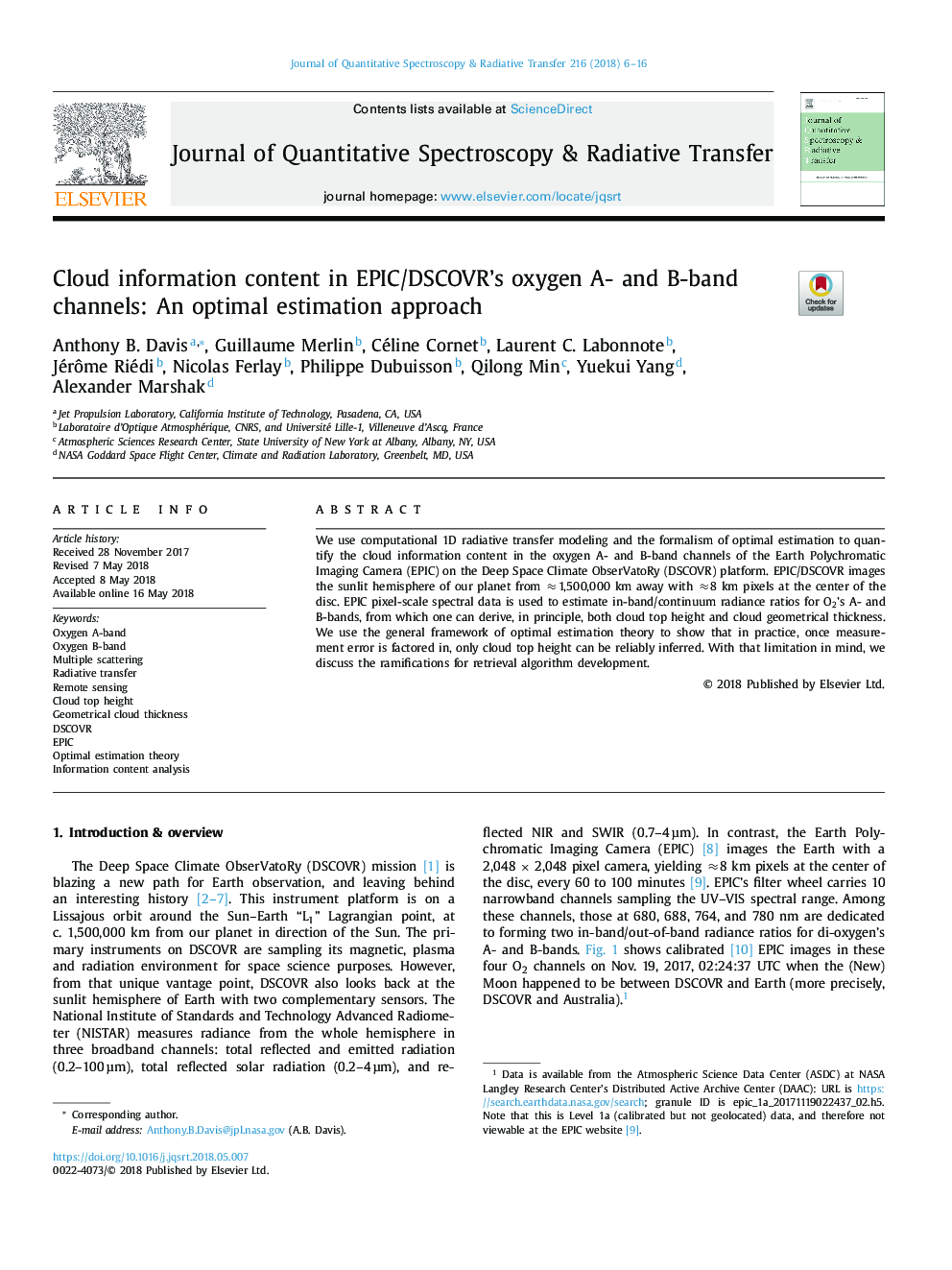| Article ID | Journal | Published Year | Pages | File Type |
|---|---|---|---|---|
| 7845866 | Journal of Quantitative Spectroscopy and Radiative Transfer | 2018 | 11 Pages |
Abstract
We use computational 1D radiative transfer modeling and the formalism of optimal estimation to quantify the cloud information content in the oxygen A- and B-band channels of the Earth Polychromatic Imaging Camera (EPIC) on the Deep Space Climate ObserVatoRy (DSCOVR) platform. EPIC/DSCOVR images the sunlit hemisphere of our planet from â¯ââ¯1,500,000 km away with â¯ââ¯8 km pixels at the center of the disc. EPIC pixel-scale spectral data is used to estimate in-band/continuum radiance ratios for O2's A- and B-bands, from which one can derive, in principle, both cloud top height and cloud geometrical thickness. We use the general framework of optimal estimation theory to show that in practice, once measurement error is factored in, only cloud top height can be reliably inferred. With that limitation in mind, we discuss the ramifications for retrieval algorithm development.
Related Topics
Physical Sciences and Engineering
Chemistry
Spectroscopy
Authors
Anthony B. Davis, Guillaume Merlin, Céline Cornet, Laurent C. Labonnote, Jérôme Riédi, Nicolas Ferlay, Philippe Dubuisson, Qilong Min, Yuekui Yang, Alexander Marshak,
